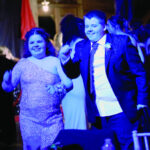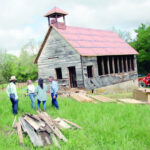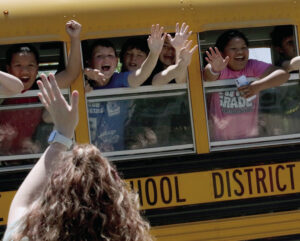The city of Cassville has proposed a budget for 2023, expecting a decline in sales tax revenue but utilizing years of unexpected revenues to complete capital projects throughout the city.
For 2022, the city took 2,958,384.71, a 6.9 percent increase from 2021. In 2021, revenues bolstered city coffers greatly, with Cassville ending the year 8.8 percent ahead of 2020, which also was 9.3 percent ahead of 2021.
The city has four sales taxes, a one-cent general fund tax, a 1/2cent capital improvement tax, a 1/2-cent parks and stormwater tax and a 3/8-cent transportation tax.
Isaac Peterson, Cassville Finance Officer, said a combination of factors over the past three years have led to the increase in revenues among all four.
“Sales taxes during the pandemic were up partially because of stimulus money, but also because of tourism, like Roaring River setting the state attendance record, and people just shopping local more,” he said.
From 2020-2022, the city saw a $700,000 increase in general fund reserves, coinciding with the upticks in sales tax revenues.
For 2023, the city has budgeted revenues and expenditures at $2,042,715. Revenue projections are up 6.9 percent, with sales taxes projected down 10 percent and expenses up 8.5 percent.
Fund-wise, the general fund is at $2,312,378, economic development at $101,996, parks and stormwater at $489,776, transportation at $260,763, capital improvements at $400,639, water at $793,160 and sewer at $842,012.
Removing commitments for projects bonds and other expenditures, the city will retain about $3.7 million in unrestricted funds in reserves, down from the current $5.2 million.
The largest expense affecting that figure is a new public works facility, fetching a price tag of $2,655,000.
“The public works facility will use a combination of construction loans and reserve funds from departments that will use the facility,” Peterson said.
Other new expenses this year include a 3.7 percent cost of living increase; a $225,000 water service project; a $130,000 sewer camera equipment replacement; a $140,000 Tigertail; $200,000 for street paving; $370,000 for local infrastructure improvements like a pedestrian bridge in the park; $70,000 to the police department for vehicles, an interview room and tablets; and $117,000 to add to new pickleball courts and resurface two others.
Overall, Peterson said the shape of the city is strong, and it continues to budget conservatively.
“We are in really good shape and have done a pretty good job controlling expenses,” he said. “Sales tax has been better than expected, and we ended the year $600,000 ahead in all four funds. It’s written into our fiscal policy to budget conservatively, and it’s considered best practice if you end the year with a fund balance, or reserves, you use that money for capital improvements instead of operations.”
Peterson said the projected 10 percent dip in sales tax revenues goes back to the city’s conservative budget policy, and it follows a formula.
“Forecasting conservatively, in pre-COVID years we had 1.2-1.5 percent growth per year, so the 10 percent is accounting for that growth as it compares to current revenue,” he said. “This will put us back on that 1.2-1.5 percent track.”




